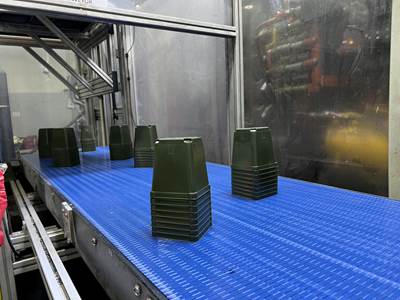The Quiet Revolution Continues
Not quite two decades ago, I wrote in this space, “Something needs to be done to improve the quality, usefulness, and believability of materials property data.” All three quantities were sorely lacking because materials specifiers had no assurance that any two materials had been tested in the same way, using specimens with the same geometry and same method of preparation.
Not quite two decades ago, I wrote in this space, “Something needs to be done to improve the quality, usefulness, and believability of materials property data.” All three quantities were sorely lacking because materials specifiers had no assurance that any two materials had been tested in the same way, using specimens with the same geometry and same method of preparation. In fact, it was altogether probable that different properties reported on the same datasheet were obtained from samples prepared in very different ways to optimize the results. Understandably, some automotive OEMs got fed up with these inconsistencies and subterfuges and demanded change.
A lot has been accomplished since then, but quite a lot remains to be done. I was vividly impressed by both the past accomplishments and the challenges ahead when I visited Aachen, Germany, in December to attend the 20th anniversary celebration of the industry group that set out to clean up the chaos in the way plastics materials data were gathered and reported. It started in 1988 with four German chemical companies that called their new regime CAMPUS, for Computer Aided Material Preselection by Uniform Standards. They pledged to follow strict protocols for specimen geometry, specimen preparation, and test methods, plus a common format for datasheet presentation. What they created, and how it has grown to a worldwide organization with more than 20 company members and hundreds of thousands of users of CAMPUS data, is presented on p. 33.
To my mind, this group’s exercise in self-discipline was an essential step forward in the maturing of the plastics industry. How could we expect plastics to be taken seriously by designers familiar with metals, glass, and concrete if the plastics producers didn’t take their own products seriously enough to provide meaningful data about them?
Uniform property testing has saved both materials suppliers and their customers many millions. But all that testing and retesting also cost suppliers an estimated half a billion Euros to date. And there’s the rub. In these very lean times, when even the biggest players are seeking Chapter 11 protection or are shedding plastics businesses and shunting them into joint ventures, who will support CAMPUS efforts to expand standardization, to recruit new members (who will assume major expenses for retesting), and to promote the benefits of data comparability to industries beyond automotive? Some consortium members already have fallen behind in providing CAMPUS data.
To some extent, CAMPUS may be a victim of its own success. It is in danger of being taken for granted, especially by marketing and finance-oriented executives who may not recognize what CAMPUS does for engineers and why it needs continued support to keep up with the evolving needs of plastics users. Why, for example, is there not a stronger presence in CAMPUS of makers of polypropylene and TPEs, both of which are important “engineering” materials today? Will members provide the resources to develop new standard test protocols relevant to thin-wall part designs and automotive crash protection? And why are CAMPUS data better known to engineers in China than in the U.S.? The ongoing CAMPUS project is a priceless resource for the whole plastics industry, but one that is made possible by the efforts of a relative few.
Read Next
Lead the Conversation, Change the Conversation
Coverage of single-use plastics can be both misleading and demoralizing. Here are 10 tips for changing the perception of the plastics industry at your company and in your community.
Read MorePeople 4.0 – How to Get Buy-In from Your Staff for Industry 4.0 Systems
Implementing a production monitoring system as the foundation of a ‘smart factory’ is about integrating people with new technology as much as it is about integrating machines and computers. Here are tips from a company that has gone through the process.
Read MoreProcessor Turns to AI to Help Keep Machines Humming
At captive processor McConkey, a new generation of artificial intelligence models, highlighted by ChatGPT, is helping it wade through the shortage of skilled labor and keep its production lines churning out good parts.
Read More






















